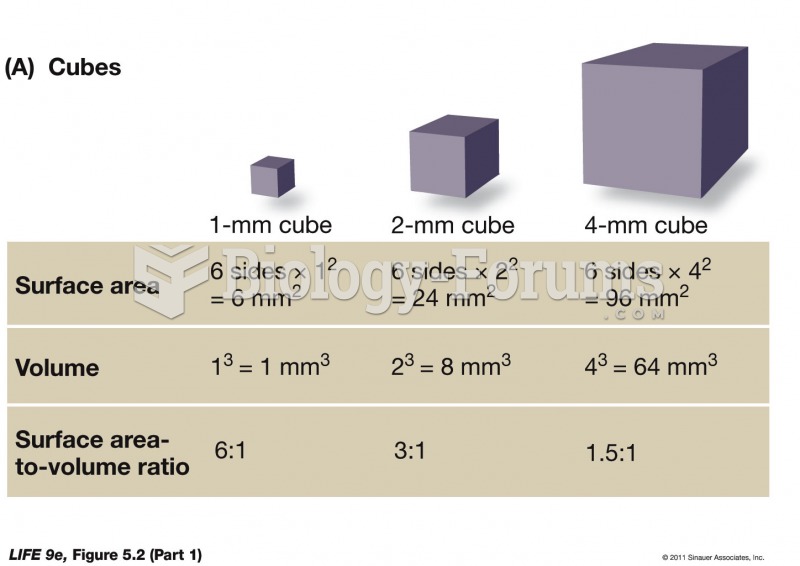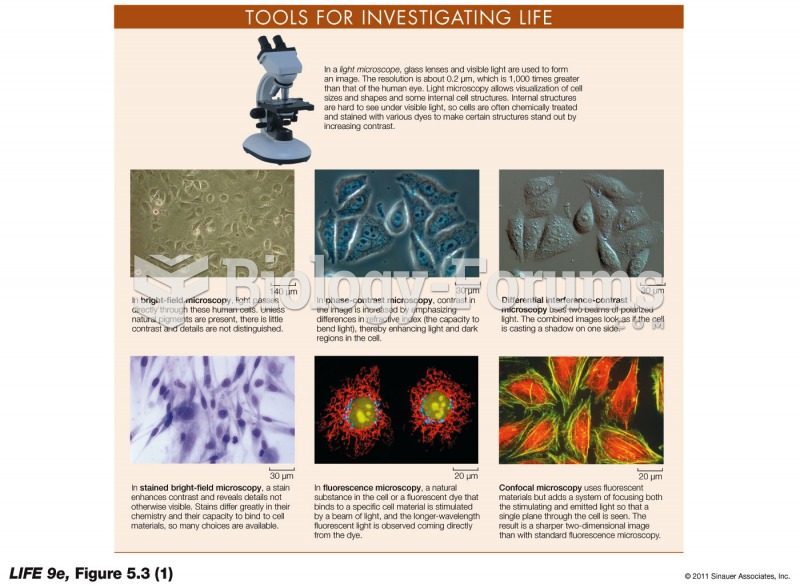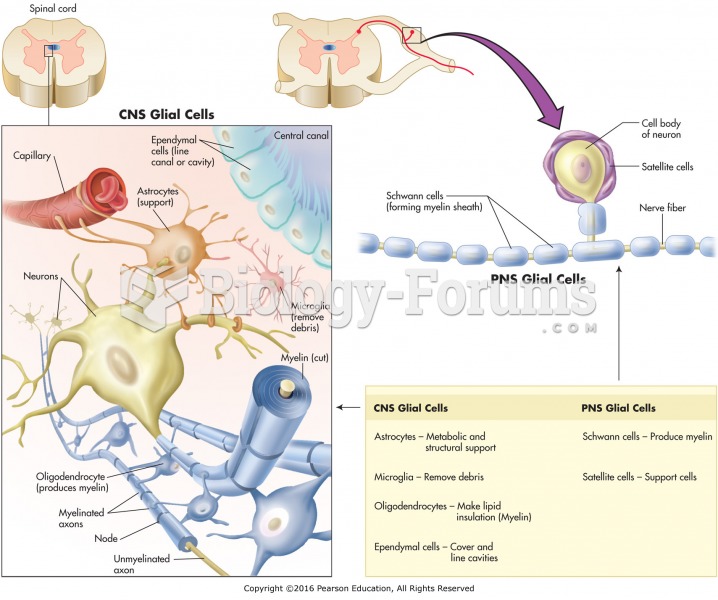|
|
|
Hyperthyroidism leads to an increased rate of metabolism and affects about 1% of women but only 0.1% of men. For most people, this increased metabolic rate causes the thyroid gland to become enlarged (known as a goiter).
More than nineteen million Americans carry the factor V gene that causes blood clots, pulmonary embolism, and heart disease.
Egg cells are about the size of a grain of sand. They are formed inside of a female's ovaries before she is even born.
Although not all of the following muscle groups are commonly used, intramuscular injections may be given into the abdominals, biceps, calves, deltoids, gluteals, laterals, pectorals, quadriceps, trapezoids, and triceps.
Blood in the urine can be a sign of a kidney stone, glomerulonephritis, or other kidney problems.







